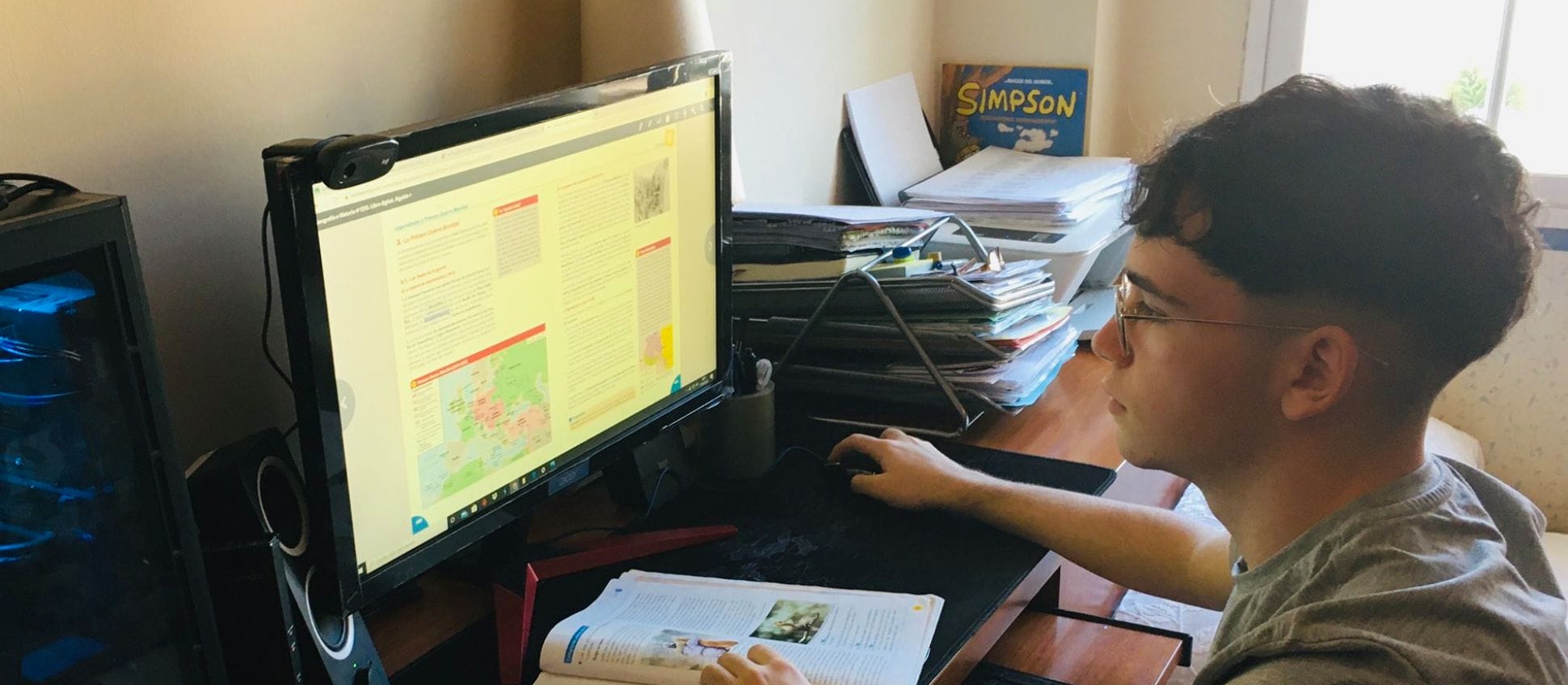Schools believe it is feasible to continue teaching through virtual classes after the pandemic, according to a survey conducted by the EDUCAR Network.
COVID-19 has brought with it a teaching modality that could survive beyond the pandemic: virtual classes. Schools believe it is possible to educate online from home. A survey conducted by the International Augustinian Recollect Education Network EDUCAR has shown this to the Augustinian Recollect schools. Teachers see continuity in online education.
The survey was conducted in nearly 50 educational centers linked to the Augustinian Recollect family throughout the world. Of these, 76 percent of those surveyed consider between seven and ten possibilities for the teachers to work online from home. Likewise, 71 percent value between seven and ten the ability of the students to follow the teaching online. In addition, 85 percent believe that regular contact between teachers and students can be maintained through home-based online classes.
The model has the feasibility it would need, provided that teachers are trained and knowledgeable in this area. The vast majority of respondents believe that teachers at different stages have digital skills to educate online. The study asks about the training of teachers in the different sections: infant, primary, secondary and high school and university. Similarly, most also see students trained for online education, from the youngest to university and vocational training students.

Students from Colegio Sagrado Corazón in Guadalajara (Spain) on their return to class with safety measures.
However, not all indicators ensure continuity. To educate online from home, an internet connection is essential. 16% of those surveyed by EDUCAR state that the internet connection that teachers at their schools have is deficient or regular, which would make online classes difficult. Many of those surveyed connect from computers or tablets at school. Similarly, the digital divide is widening in some areas where students do not have access to the Internet on a regular basis, do not have a personal computer, or do not have a work environment conducive to studying at home.
Among other things, respondents believe that new technological tools, coordination between education levels or strengthening of training in this area are necessary. Nine out of ten respondents want to share experiences between schools about online education. For all these reasons, since last April, the EDUCAR network has been organising numerous meetings of directors and those in charge of educational levels to seek proposals for improvement and common solutions.


